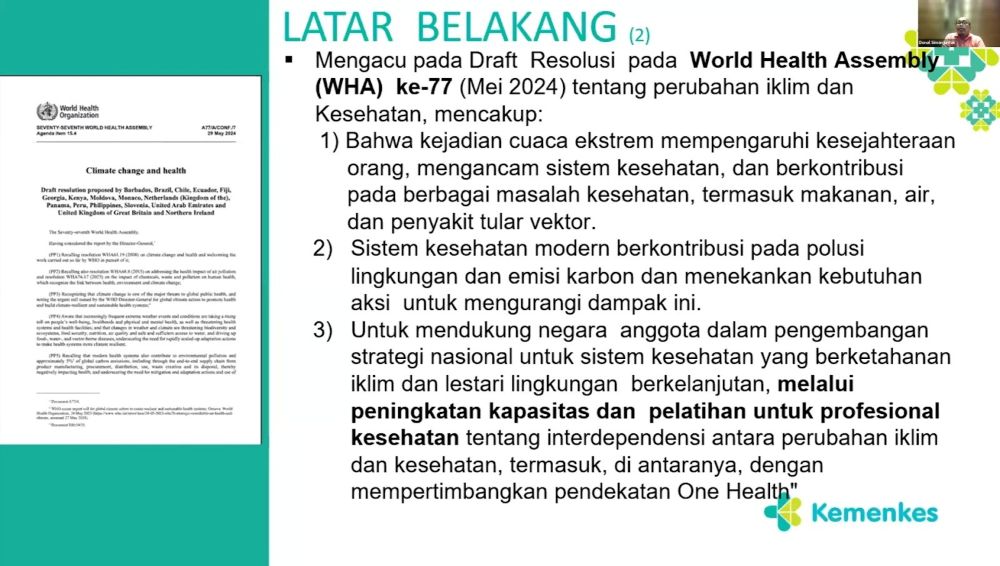ITB Students Teach Coastal Flood Prone Communities to Create Desalination Device and Seawater Filtration
By Adi Permana
Editor Adi Permana

Pekalongan, itb.ac.id — Coastal flood is a recurring disaster for the northern shores of Central Java, one of them being the Degayu Subdistrict, North Pekalongan District. Consequently, the local community must adapt to the sticky and itch-inducing brackish water in order to make ends meet.
Noticing the problem, ITB Coastal Care Team was encouraged to hold a community service through creating a desalination device and seawater filter. The service was fully supported and sponsored by the ITB Directorate of Student Affairs.
Desalination is a process to reduce water salinity, whereas filtration is a process to eliminate alien elements in water, such as sediments or ominous tastes and smells therefore producing a better-quality water.
The creation of this desalination and filtration device utilizes affordable and commonly accessible materials. The material needed to make a desalination device includes sengon wood, mica plastic, 2-inch pipe, and mulch plastic.
The sengon wood is assembled to form four stair levels with walls on their side. Afterwards, the mulch plastic is glued on each step such that the water will not leak onto the wood. Lastly, the device is covered with mica plastic. Each distillation device costs IDR300,000 and is even less expensive with second-hand wood.
“Our device’s concept relies on evaporation. This can contain up to 20 L of water. Brackish or saltwater is poured into the device and dried out under the sun. When the evaporation process ensues, salt that possesses more mass will be left over the mulch plastic. Meanwhile, pure water evaporates and stick on the mica plastic’s inner side. Through the incline of the mica, saltless water will drop over the container,” explained Filan Muhammad, a team member of ITB Community Service as well as the coordinator for this project.
The oceanography student mentioned, the total freshwater extracted is 40% of the total water input. The desalination process relies on the sunlight intensity given. Degayu Subdistrict is a suitable region for the device’s trial use, with its warm coastal temperature. The water produced can be used for the locals to bathe.
“The water produced really is pure H2O without any additive minerals. Thus, there still needs to be further research for its feasibility as drinking water,” remarked Salwa Azharelfa, a fellow team member.
While making the filtration device, a few sieving will be made in layers of sponge-zeolite/ manganese-sponge-charcoal-sponge-silicone-coconut coir-sponge.

“Zeolite/manganese is beneficial to filter heavy cation metal. Meanwhile, the charcoal will absorb smells, absolve water, and remove impurities. We chose silicone to reduce suspended solid particulate in the water and the coir as dirt-cleaning agent,” stated the Head of ITB Coastal Care Team, Riyadi Zakia (OS 20).
The creation of this filtration system cost less than IDR50,000. Moreover, it is easily applicable on waterways from home reservoirs, therefore can be used directly. After testing with a water quality meter, the filtered water has low turbidity level and decreases in pH value by 0.06.
ITB Coastal Care Team not only explained the mechanism of this device, but also encouraged the local community to practice creating it together. A great number of people participated in making the two devices. “We hope this knowledge transfer from ITB students could alleviate the issues faced by the people of Degayu Subdistrict. Hopefully, in the future these devices can be developed further and its employment will be on a massive scale,” expressed Sella Lestari Nurmaulia, S.T., M.T., as a mentoring professor.
The event held on Friday (24/22/2022) successfully attracted attention from various parties, such as the Pekalongan City’s Department of Public Works and Housing, Partnership for Governance Reformation (PARTNER), and the Municipal Government of Pekalongan City.
Reporter: Maharani Rachmawati Purnomo (Oceanography, 2020)
Translator: Firzana Aisya (Bioengineering, 2021)

.jpg)
.jpg)
.jpg)
.jpg)
.png)


